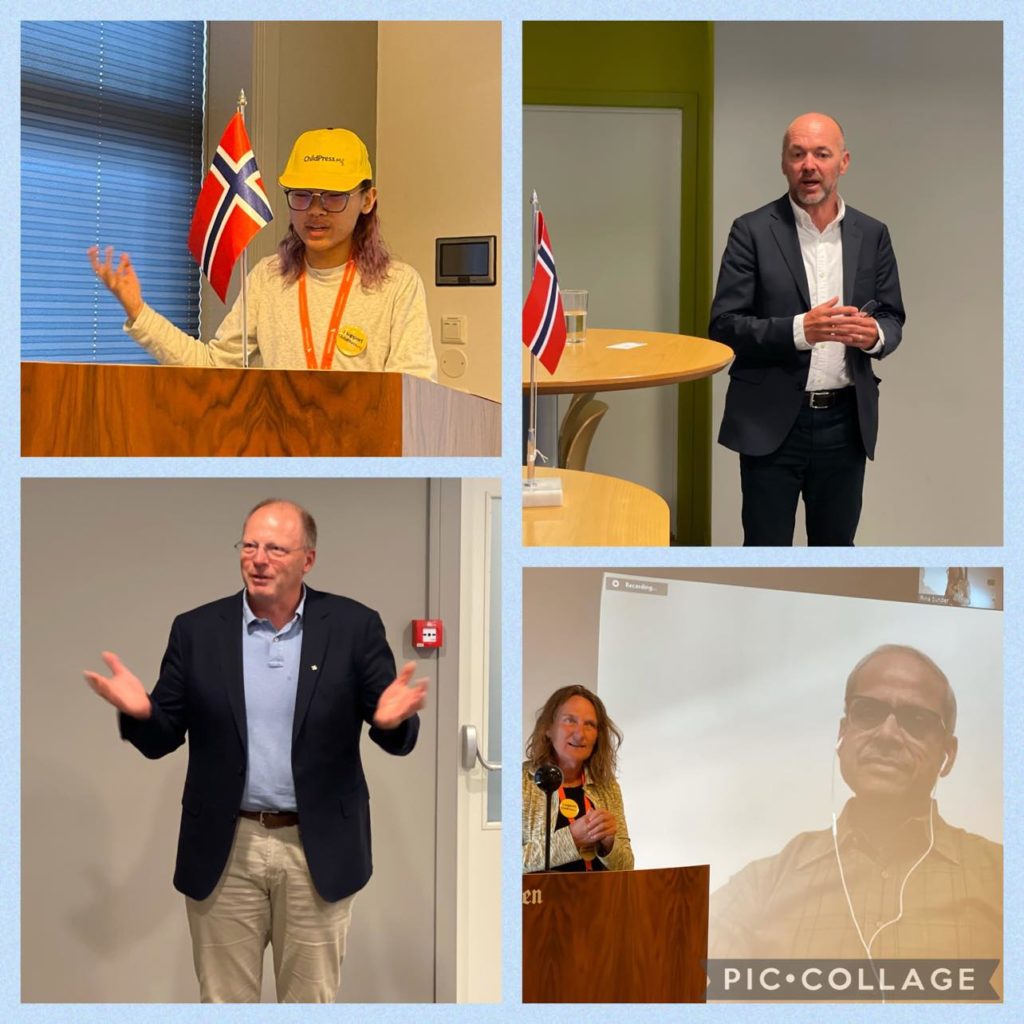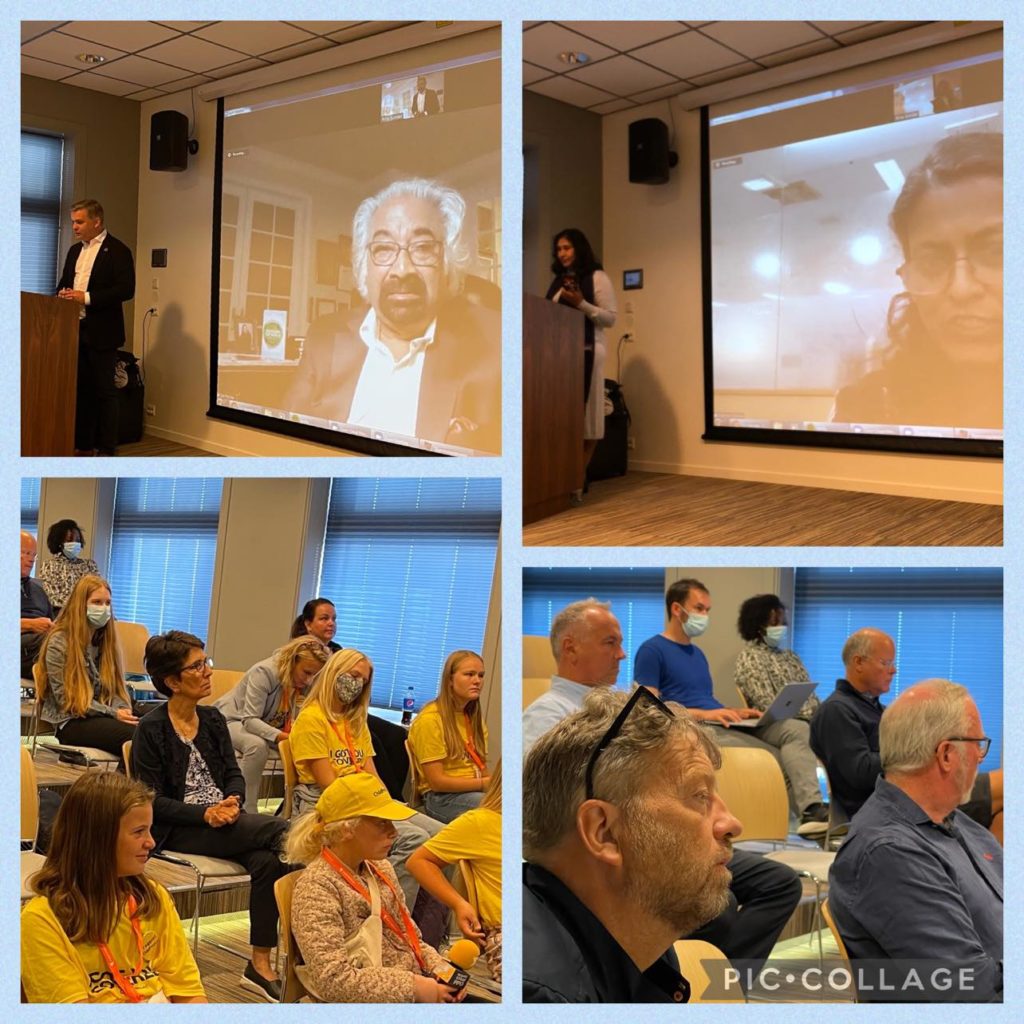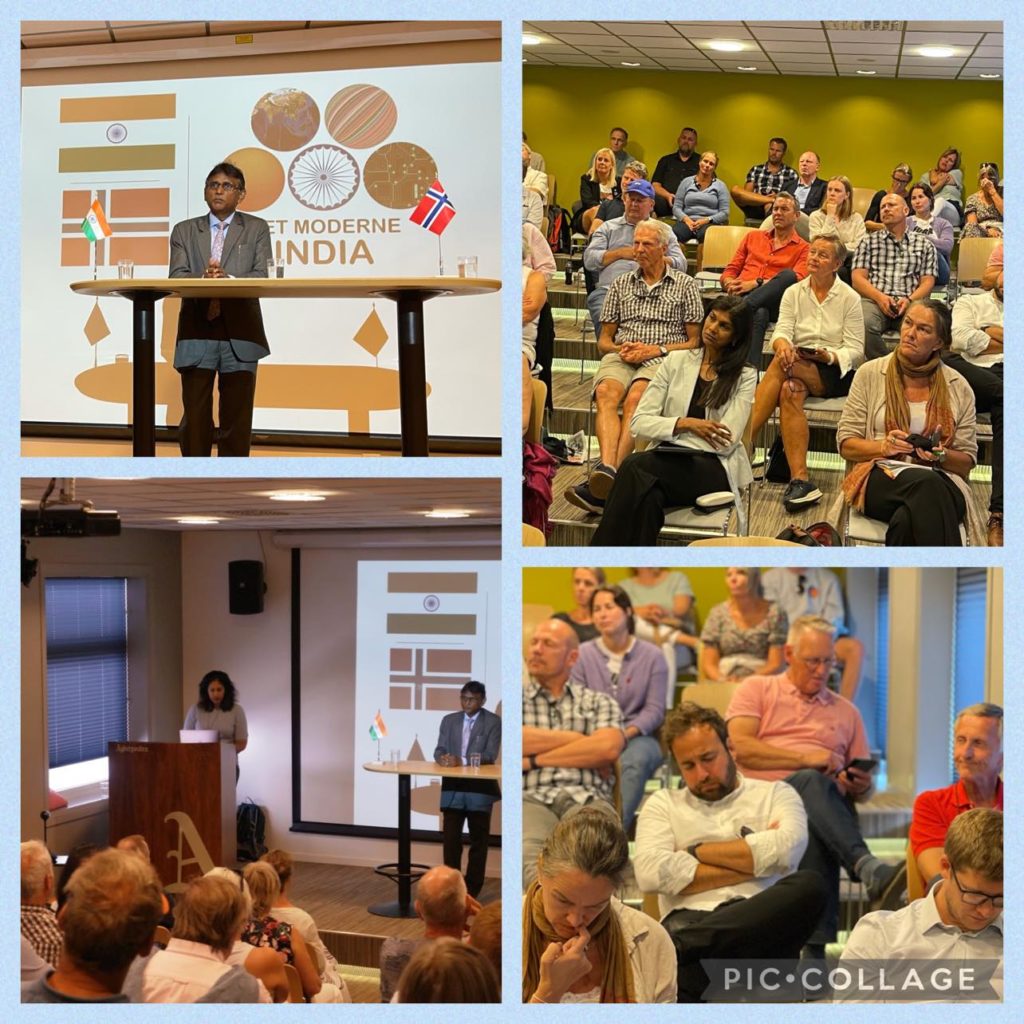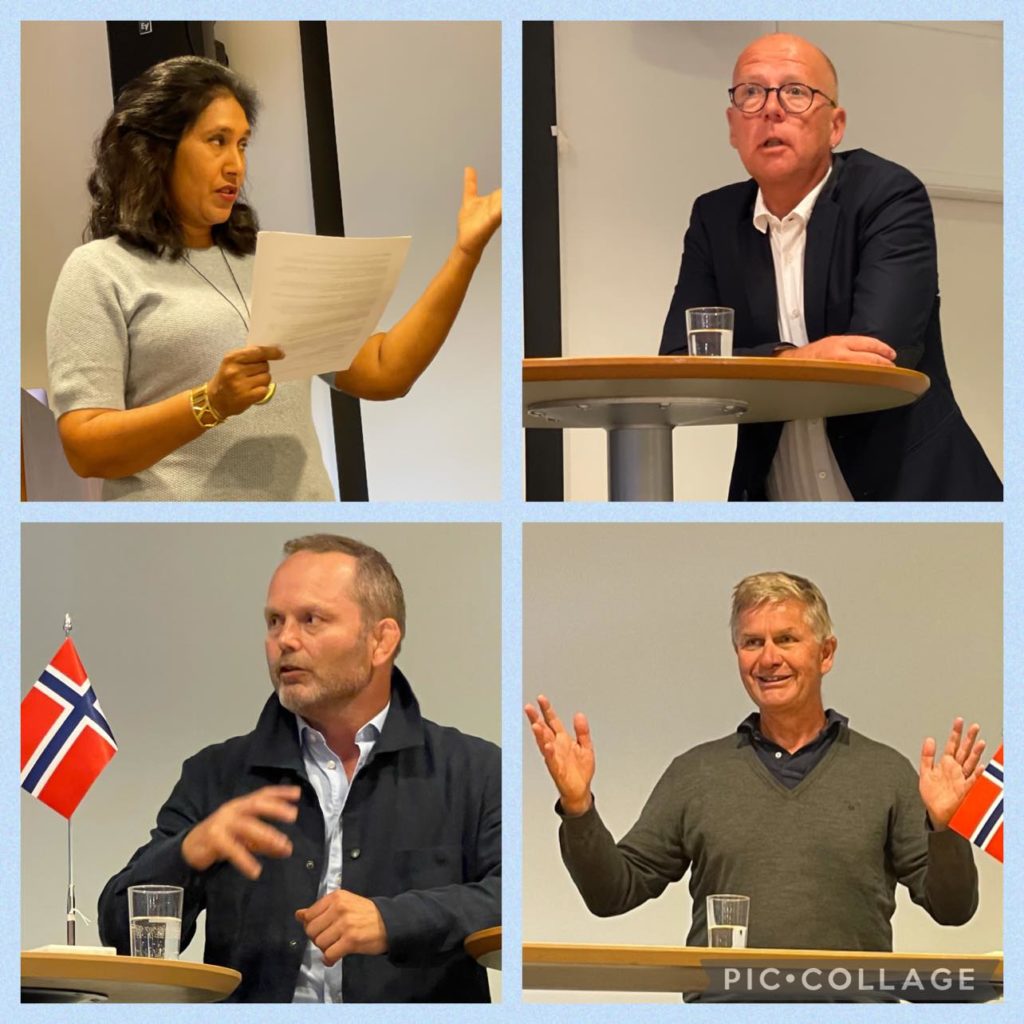The world was last designed seventy-five years ago. In the late nineteenth century, the three great powers were imperial Britain, the United States, and a rising Germany. In the mid-twentieth century, the US, Britain and the Soviet Union formed the dominant troika. As the twenty-first century enters its second quartile, the three most important nations will be the US, China, and India.
The most remarkable phenomenon in Asia in the 21st century is arguably the economic rise of China and India. Amazingly, the two most populous countries in the world are uplifting millions of their citizens annually from poverty through rapid economic growth. India will be the third largest economy in the world by 2030.
We had with us Ms Shabnam Siddiqui, Executive Director at UN Global Compact India, and Mr Sam Pitroda.
Sam Pitroda is a true front runner! He is an internationally recognized telecom inventor, entrepreneur, development thinker, and policy maker who has spent fifty years in information and communications technology (ICT) and related global and national developments. Credited with having laid the foundation for India's telecommunications and technology revolution of the 1980s, Mr Pitroda has been a leading campaigner to help bridge the global digital divide. He was also the founder and first chairman of India's Telecom Commission. Recently, Mr Pitroda served as adviser to the Prime Minister of India on public information infrastructure and innovation, with the rank of cabinet minister. In addition, Mr Pitroda is a serial entrepreneur having started several companies in the United States. He holds over fifteen honorary PhDs, close to 100 worldwide patents, and has published and lectured widely in the United States, Europe, Latin America and Asia.
In this seminar we addressed the following:
USA, China and India: What will this new world order look like over the next quarter century?What will be key for India when shaping the new G3?E-governance will connect billions of Indians; how can India use hyperconnectivity to realize its ambitions of becoming the next global leader.How can hyperconnectivity be an opportunity to redesign the world and take humanity to the next level?What role will business and finance play? And how does this look like from India?
The seminar is uploaded on
Youtube and the
podcast.



